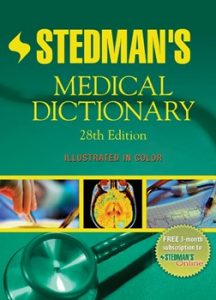Do you grab your phone and head for Google, Bing, or one of dozens of other search engines the moment a question on any subject pops up? If you’re looking for driving directions or good rate on a motel, that’s usually not a problem.
On the other hand, maybe you’re concerned about a rash on your baby’s bottom or a sudden increase in her drooling or crying. You call your mother, who says it’s just diaper rash, or the drooling and crying is just teething. That’s only comforting if your mom is a doctor. If not, you want to be sure she’s right, but it is ten o’clock on a Saturday night, and your doctor’s office is closed. Do you call her answering service or make a trip to the Emergency Room?
Or do you go to your phone or computer to look up your baby’s symptoms? If you do that, proceed with caution. The Internet is not a doctor!
Your search engine cannot guarantee that the sites you visit will give you the medical advice you need. What you find online may be unreliable at best, or dangerous at worst. Consider recent false news of a cannabis cancer cure. https://www.ncbi.nlm.nih.gov/pmc/articles/PMC6426557/
To avoid those pitfalls, you might try visiting the National Institute of Health’s U.S. National Library of Medicine. https://www.nlm.nih.gov/
Let’s get back to that mother with the unhappy baby. The most helpful of the US NLM options for laypersons seeking information would likely be MedlinePlus.
After reading through causes, symptoms, exams, tests and treatment, let’s look at their advice about when to call the doctor for diaper rash.
Call your child’s provider if:
The rash gets worse or does not go away in 2 to 3 days
The rash spreads to the abdomen, back, arms, or face
You notice pimples, blisters, ulcers, large bumps, or sores filled with pus
Your baby also has a fever
Your baby develops a rash during the first 6 weeks after birth
What about the drooling and crying? Let’s see what advice the NIH site offers:
 MedlinePlus indicates the signs of teething are:
MedlinePlus indicates the signs of teething are:
Acting cranky or irritable
Biting or chewing on hard objects
Drooling, which may often begin before teething starts
Gum swelling and tenderness
Refusing food
Sleeping problems
Teething does NOT cause fever or diarrhea. If your child develops a fever or diarrhea and you are worried about it, talk to your health care provider.
Notice in both cases, the warnings about calling your health care provider. No matter how well you do your research, or how certain you feel that your mother’s diagnoses are correct, the NIH reminds you that consulting your doctor is your best choice when it comes to keeping your baby, or yourself, healthy and happy.
For more information about the U.S. National Library of Medicine, go to: https://www.nlm.nih.gov/
Aimee Machado, hospital librarian with a specialty in forensic collections, finds herself investigating a sordid crime involving medical procedures performed on undocumented immigrants in private prisons. Primary Source is book five in the Aimee Machado Mystery series published by Camel Press and Harlequin Worldwide Mysteries.



 Check out my January 30 Coffee Chat with urban fantasy writer Ally Shields. https://allyshields.com/blog/archives/01-2019
Check out my January 30 Coffee Chat with urban fantasy writer Ally Shields. https://allyshields.com/blog/archives/01-2019









